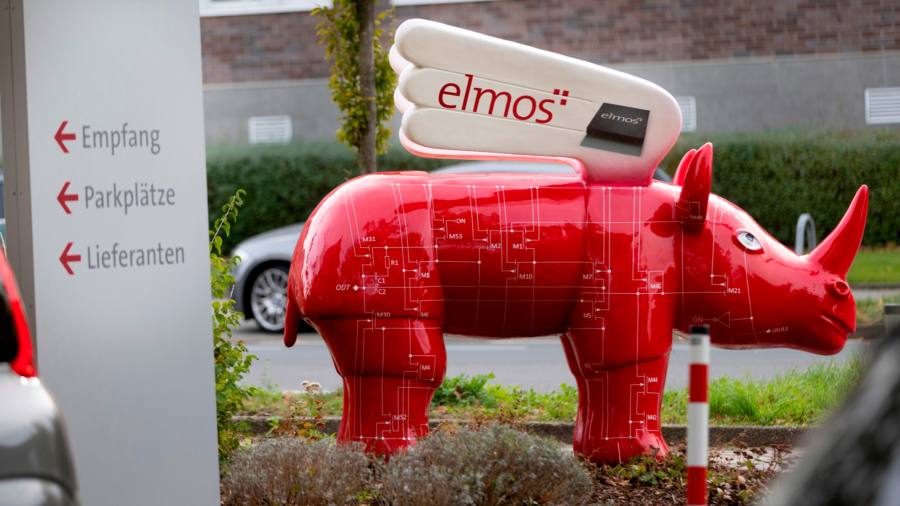
Germany has blocked another Chinese acquisition of a domestic semiconductor company, in a further sign of the government’s tougher approach to protecting its high-tech sector.
Robert Habeck, economy minister, announced the decision on Wednesday, but declined to name the company affected. However, a person familiar with the matter said it was ERS Electronic, a tech group based in Bavaria that was to have been acquired by a Chinese investor.
ERS makes thermal chucks that are used to hold semiconductor wafers in place while they’re being probed. The decision to block the deal was first reported by Handelsblatt.
The government also confirmed that it had stopped the sale of Dortmund-based Elmos’s semiconductor plant to Chinese-owned Silex Microsystems.
The moves highlight increasing government concerns over the security of western chip technology and supply chains. In October, the US introduced far-reaching controls on the export of high-end chips, in a move designed to make it harder for China to manufacture advanced semiconductors.
The economy ministry said in a statement that the Elmos acquisition “would have endangered Germany’s public order and security”.
The decisions on Elmos and ERS came just days after German chancellor Olaf Scholz made his first official trip to China — the first visit by a western leader since the start of the coronavirus pandemic.
Scholz courted controversy in the run-up to the trip by over-ruling the advice of six ministries and his intelligence agencies to push through the sale of a stake in a container terminal in the port of Hamburg to Chinese shipping company Cosco.
The Greens, part of Scholz’s governing coalition, protested against the decision. Green members of the government, particularly Habeck and foreign minister Annalena Baerbock, are seen as more sceptical of Chinese investment than Scholz, a Social Democrat — though he, too, has spoken of the need for German business to diversify away from China into other markets.
Habeck said that in the semiconductor industry “it’s important for us to protect Germany’s and Europe’s technological and economic sovereignty”. “Germany, of course, is and remains open to investment, but we’re also not naive,” he went on.
Speaking to reporters later, Habeck said that China was pursuing a “deliberate strategy” of “trying to acquire knowledge” of production processes in the semiconductor and microchip industry in order to “wield influence” over the sector. “That’s why it’s imperative to look at the whole picture,” he added.
He said that Germany must start to subject inward investment to closer scrutiny. “The times when you could lean back a bit and say economic policy is at its best when it’s unpolitical, and the best minister is the one who does nothing — they’re over,” he said.
The investment screening carried out by his ministry was now “embedded in a geopolitical context that is highly politicised,” he said.